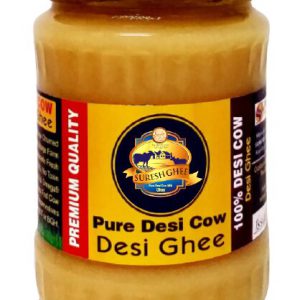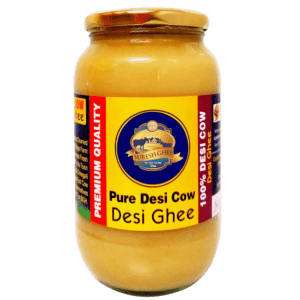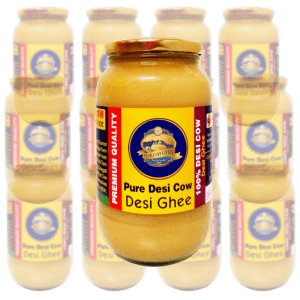Seniors must focus on what they are eating at mealtime. Seniors should be attentive to how they are planning their meals and making the most out of their diets as they age. The good thing is that different points can be tried when planning a healthy dietary routine.
As you age, your senses start to weaken and your metabolism rate also starts reducing. This makes you more prone to chronic conditions. However, it is controlled by taking care of your well-being by choosing healthy and smart eating habits.
Healthier eating practices protect you from many harmful impacts on health. It may not be simple to get started, but if you can try to follow a few good habits early on, it will be good to follow them over time. Remember, it’s never too late to begin well for a better life.
Seniors need to intake healthy food so that they can age gracefully and get immunity against age-related illnesses. Healthy consumption may also help to lower the risk or help to cure chronic illnesses such as heart issues and diabetes.
Read More: Difference between Oil and Ghee
Healthy Eating Tips For Seniors
A balanced diet includes food full of healthy nutrients that your body requires to be healthy, now let’s discuss the five diet habits for seniors. Here are some tips to assist you in improving your nutritional needs as you age.
1. Always Prefer a Balanced Diet
Get into the habit of eating well-balanced meals that include proteins, vitamins, minerals, fiber, and other supplements. Lower the consumption of foods that include processed sugars, salt, trans fats, and saturated fats.
Remember that poor nutrition is prone to weak immune systems and more illnesses and the risk of being underweight or overweight. If you want to consume in between meals, or you have hunger pangs earlier or before mealtime then go for healthy snacks such as fruits, nuts, and smoothies.
2. Eat Food Rich in Nutrients
Your appetite, nutritional requirements, and eating habits change as you grow older. Also, note that you may need fewer calories due to decreased physical activity. You may also stop having your appetite and consume less.
Ensure that the diet includes enough supplements and calories so that you don’t end up with health issues or be malnourished. The foods should include proteins, vitamins, fats, carbohydrates, and minerals.
You can add vegetables, fruits, nuts, beans, whole grains, lean protein, low-fat dairy, seeds, and lentils to your diet plan. Ignore foods that have fewer nutrients and large calories such as deep-fried snacks, sweetened beverages, and processed items.
Therefore, as you select the foods to add to your diet, select foods that are supercharged in nutrients.
3. Prefer Well-portioned Plates
The kind of food on your plate must be well-portioned. You should not intake too much of anything. Too much of anything is also harmful to your health. One simple way to work on this is to split your plate into four where fruits, vegetables, starch, and meat makes a quarter of the space equally.
Also, don’t have a too large plate that will lead to overconsumption. Follow the limited serving amounts. You can also balance your serving measures instead of relying on accuracy regarding the correct quantity of food.
4. Plan Your Meals in Advance
When you plan your meals in advance, you are making it simple to have healthier options. With a plan, you will get what elements to purchase, as it may be for a coming week or a fortnight.
The earlier line-up also prohibits you from making a rushed meal that may not fulfill all your nutritional needs and you will also be more tempted to have outside food.
5. Drink Plenty of Fluids
As we age, our sense of thirst starts reducing and seniors are often distracted to realize that they are not having enough fluids. Lack of fluid in the system can affect different complications involving but not limited to dehydration.
For seniors, it is suggested to drink water and sometimes low-calorie drinks for well-hydrated. You should drink enough water regularly so that you can stay hydrated and be healthy.
Read More: Build immunity with desi ghee
6. Limit Your Table Salt Use
Our sense of taste tends to lose as we get older. Hence, most seniors want to add extra salt to their food to increase the flavor. But what most folks fail to realize is that the intake of too much salt can cause high blood pressure and can ultimately also be prone to a stroke, heart, or even kidney disease. The regular intake of sodium should not cross the 2,300 milligrams amount.
7. Maintain Consumption of Sugar
Refined sugar is packed with empty calories which means it doesn’t deliver any nutritional value. Try to decrease sugar quantity from your diet and switch to adding more whole elements which are sweet like yams, sweet peppers, and fruits.
8. Induce Desi Cow Ghee in Your Diet
Desi ghee is a crucial source of conjugated linoleic acid or CLA. CLA may assist in the fight against obesity. So it indicates that the CLA seen in cow ghee may help in avoiding excessive weight gain. It may also assist to lower the mass of body fat seen in seniors.
No other food ingredient has got as much bad press as desi cow ghee. Ghee intake doesn’t have any adverse effects, so desi cow ghee is right for you. It turns out to be very nutritious in cooking food with desi ghee and putting it in our bowls of steaming dals and rice.
In the scriptures, it has been compared or equated to gold. Experiencing its amazing health values, we get to know the real worth of cow ghee!
Nutritional Properties of Desi Cow Ghee:
- Organic cow ghee is a calorie-dense element, 100 ml of grass-fed cow ghee offers as much as 883 calories of energy.
- Organic cow ghee is a pure form of healthy fat and has no crucial amount of proteins, carbohydrates, sugar, or fiber. 100 ml of desi cow ghee includes almost 99.8 grams of fat. Most of the fat amount in desi cow ghee is saturated fat. It also has a good cholesterol balance.
- Pure cow ghee is also loaded in vitamin A, vitamin E, and vitamin K. If the source of desi ghee is the milk obtained from grass-fed cows then it offers versatile health benefits.
Conclusion:
Eating nutrient-rich foods and following healthy lifestyle tips can ease healthy aging problems. Use the tips above to learn about various elements of a balanced diet and to follow a nutritious meal plan.
Simple precautions can go a long path toward boosting a healthier diet practice. Follow these tips to meet your nutrient requirement and reduce the risk of diseases.
Also as we discussed, the addition of desi cow ghee in the adequate level in food will elevate the graph of your health fitness. Along with all nutritional values, it will help you to build your immunity by combating the chances of many diseases.
If you want to get the benefit of it then always prefer organic cow ghee made by the traditional wooden churning method. You can buy or order it online here: www.sureshfoods.com.







 WhatsApp us
WhatsApp us
Naveen m...